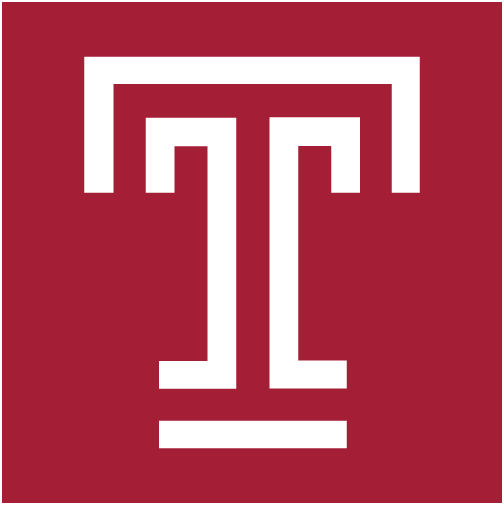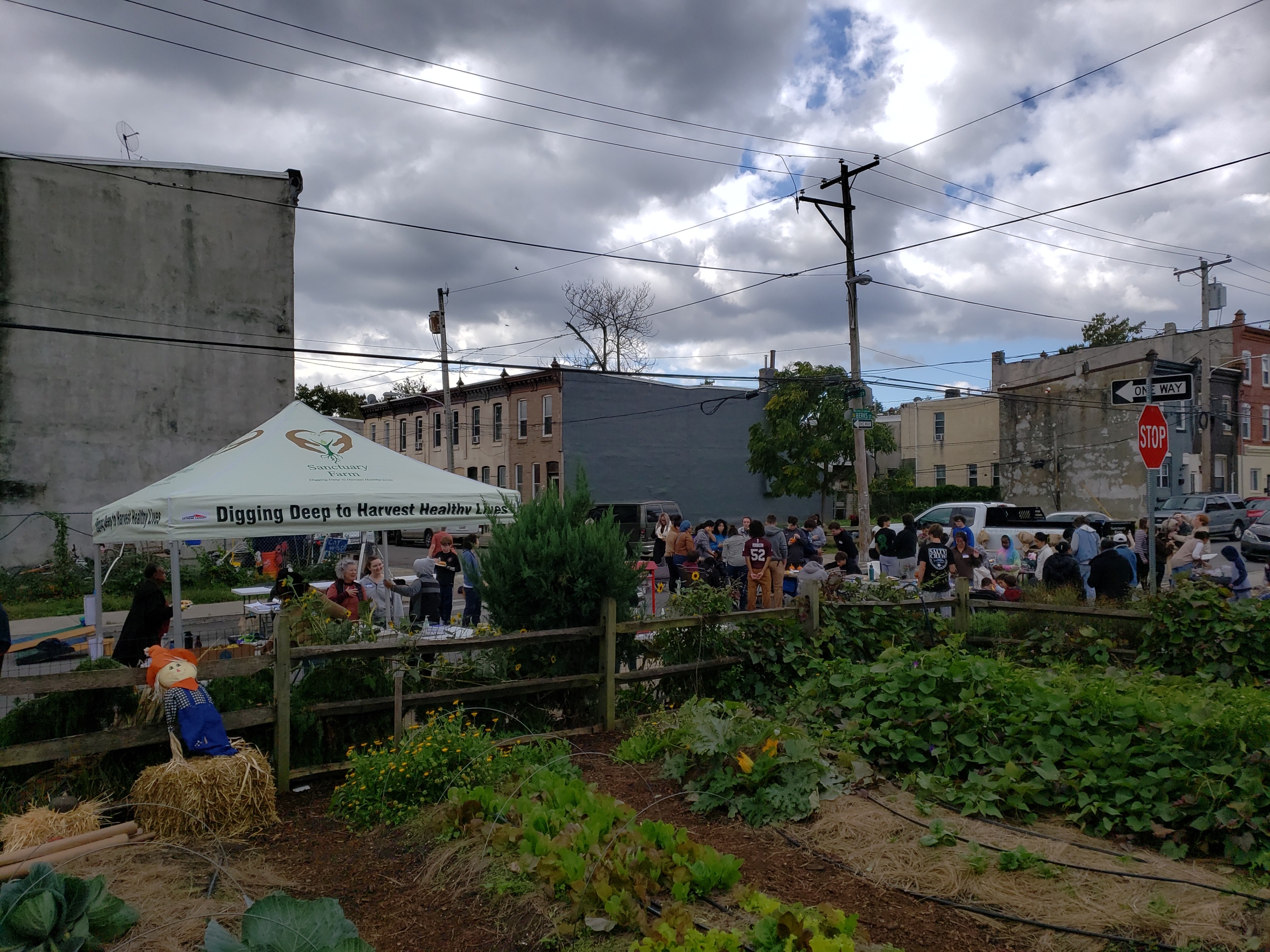On the corner of 24th and Berks streets, Sanctuary Farm serves one of the poorest areas of the city. It might also play a role in reducing gun violence.
by Allison Beck

Majesty Moreland, a lifelong North Philly resident, hadn’t expected to see a garden pop up in a long-vacant lot a few blocks away from her home.
“I found the garden just walking in my neighborhood,” she said. “I feel like we don’t have stuff like this. You see the community come out, you see the older adults, you see the younger kids, you see the younger adults, and we’re just chilling, ain’t no violence. It’s smiling, people get along, you can’t beat it.”
In Lower North Philadelphia neighbors live in what experts call a food apartheid or food swamp with little access to high quality, fresh or affordable food .Only 16.4 percent of food stores in this area are considered high-produce stores , according to the Philadelphia Department of Public Health. Neighbors have access to food in their area, but most of it is high in calories, fat and sugar.
Andrea Vettori saw its direct impact through her work as a nurse practitioner. She said that the marginalized communities she served didn’t have access to the healthy foods she was encouraging them to eat.
“That was happening parallel to this kind of growing frustration on my part with the traditional healthcare system not being able to address the needs of my patients,” Vettori said. Then, in 2017, she won a $20,000 grant to start Sanctuary Farm, an ever expanding organic garden at the corner of 24th and Berks streets that provides free produce, therapeutic gardening, and health programs to the neighborhood.

According to the Center for Disease Control, poor diet is correlated with issues like obesity, heart disease, stroke, diabetes and at least 13 types of cancer. At-risk individuals are also vulnerable to mental health issues like ADHD, depression, anxiety, and cognitive decline.
Even if neighbors have access to a store with quality food, being able to afford that food is a problem of its own. According to city data, about 16.3 percent of Philadelphians face regular food insecurity. A 2023 study showed that number more than doubles in North Philadelphia, coming in at 36.9 percent.
Lester Cohen, a longtime volunteer and executive board member, spends a lot of time giving out free produce at Sanctuary’s farmstand and speaking with neighbors.
“For most people, if you are on SNAP, food stamps, there is not enough money per person for you to buy fruits, vegetables, and enough calories to live,” he said. “It’s one or the other, and most people have to choose the calories because they want to live.”

Studies from several organizations, including Brookings, UC Irvine and USAID highlight poverty and economic and racial inequality as two key factors in crime rates, particularly homicide and assault, including gun violence.
Monique Taylor, a longtime resident and supporter of Sanctuary Farm, remembers what the corner was like before it was transformed.
“A lot of these lots were once riddled with crack dealers, so you look at them now, and you know, food is life. It brings more light to the community,” she said. “It’s breathing, it’s living, it’s thriving in the poorest community in Philadelphia. We’re thriving.”

According to a 2018 study led by UPenn and other university researchers, Philadelphia neighborhoods where vacant lots were cleaned up experienced a 29 percent reduction in gun violence, 22 percent decrease in burglaries, and 30 percent drop in nuisances like noise complaints and illegal dumping. An earlier study also found that in the first year alone, cleaning and greening shows a $26 return on taxpayer investment, plus a $333 in societal benefit given the reduction in gun violence.

Since 2018, shootings within two and a half blocks of Sanctuary have stayed around or below levels in its ZIP code, based on data from the City Controller’s gun violence data site. While a direct correlation cannot be made, these results align with the 2018 UPenn study.
Urban agriculture has additional impacts on communities of color. A 2023 study through Bartram’s Garden in South Philadelphia highlighted feelings of increased collective agency and community resilience, mental health impacts, and increased feelings of connection with spirituality in Black participants.
James Mitchell, a vegan chef who lives in the neighborhood, believes that having an opportunity to choose healthy foods without worrying about cost allows Sanctuary’s neighbors additional agency in their lives.
“My life, my destiny, is in my hands, the choices I make, what I put in my body,” he said.

The one thing Vettori makes sure her volunteers are sure of is hospitality.
“If a neighbor comes up and starts asking questions, you stop what you’re doing and you talk to them,” she said. “If you’ve got someone who is, you know, high, or clearly on drugs or drinking but you can still talk to them, talk to them. They’ll remember that.”
Sanctuary also has an advisory board that communicates with the community about major decisions and programming.
“When somebody says that they want something, we show up and we do it,” said Halle Watkin, a former Sanctuary employee.
With their eyes on the future, Sanctuary Farm recently purchased a row home next to their original plot of land, and are planning to convert it into a space for year-round programming, including their current therapeutic gardening, summer camps and classes for all ages.

Sanctuary faces challenges when it comes to funding, which Vettori said mainly comes from individual donors and grants, with occasional government assistance. The biggest problem is salaries, since most grants don’t create funding for it, she said. Currently the operation costs around $200,000 per year, with numbers expected to increase as programs expand.
The farm currently has two full time staff, one seasonal part time farmer, two full time year-long volunteers, a very part time fundraiser, a very part time bookkeeper, and a large group of volunteers, mostly retirees, Vettori said.
To make up the difference and create local jobs, Vettori plans to develop a for-profit branch that sells products, like marinara sauce, jams, and jellies, as well as a landscaping and lawn care service. Both would employ returning citizens and those in recovery.
She also hopes that one day, a person of color from the neighborhood will fill her position. “And then, I can just go back to picking tomatoes.”


